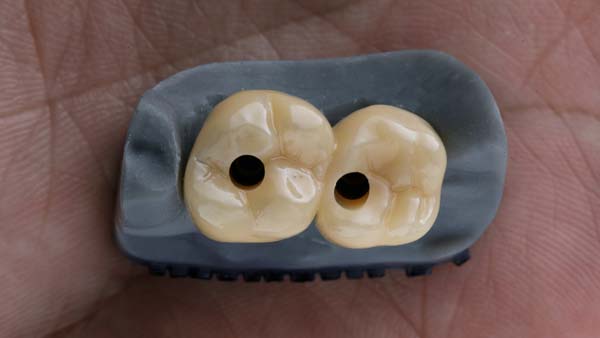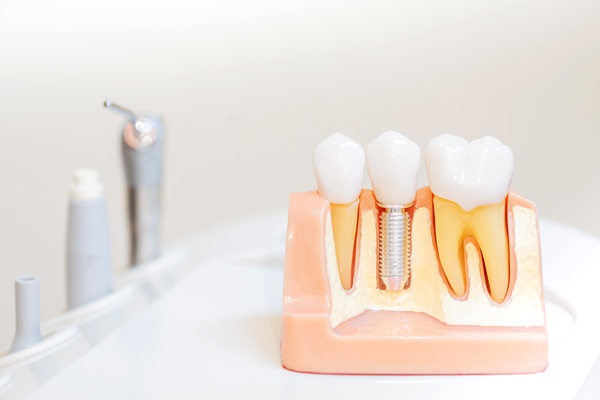How Does an Oral Surgeon Approach Dental Implants?

Clinical studies show that the dental implant remains the gold standard of dental restorations. Implants can help bring back your smile and dental function. The right dental professional can perform the procedure without any issues. Here are the details on how an oral surgeon approaches a dental implant surgery.
Ability to deal with complicated cases
Choosing a dentist who has training and experience in handling dental implants is important. Getting these restorations is a huge decision. The invasive process may involve difficult procedures. A regular dentist will not be able to handle such situations. This is when an oral surgeon comes in.
Many dental implant surgeries need more procedures. Only the techniques and knowledge of a surgeon can perform them. A common example is jawbone grafting. In some patients, the jawbone is too thin to support implants. Significant jawbone loss will need bone grafting first. This additional procedure will thicken the area enough for dental implant surgery.
Jawbone grafting involves opening up the gum area that has a thin jawbone. Taking some healthy bone and then placing it in the jawbone that needs it will follow. It will take months before the jawbone and gum tissue heal. The doctor will determine if it is time to start the dental implant procedure.
In some cases, some sections of the upper dental arch need the same treatment as well. The surgeon will then perform a sinus lift. Placing some healthy bone in the areas that need it will thicken them. The dental implant surgery will then start after complete healing.
Substantial experience when it comes to dental implants
An oral surgeon is highly knowledgeable in dental implant surgery and oral anatomy. This type of dentist has four to six years of training after dental school. Exposure to different dental restoration patients provides more than enough experience with implants. These encounters equip the surgeon to perform the procedure. A custom-fit treatment plan is crucial. The surgeon will create this to meet the patient’s needs.
The procedure
A dental implant procedure will start with jawbone preparation. Evaluating the jawbone is necessary to see if it can support the titanium rods. The surgeon may peel back the gum tissue or make a circular incision to check the thickness of the jawbone. Using a bur to mark the bone will follow. A divot or indentation will guide the pilot drill later.
The surgeon will drill a pilot hole into the bone. A jig will help ensure that the drilling is on point. Using an alignment pin will keep the placement straight. It will keep the new implant in line with the natural neighboring teeth. Threading the pilot hole and inserting the titanium rod will follow. The surgeon may also choose a self-tapping implant that creates a ribbed pattern as it goes into the hole.
The oral surgeon will stitch the gum tissue over the titanium rod. Doing so will let the area heal faster. The rod will fuse with the gum tissue and jawbone. This will take about six months. Full healing will depend on the patient’s ability to recover. The surgeon will then call the patient back to attach the titanium abutment and the dental crown.
An oral surgeon approaches each dental implant based on each patient’s individual needs
Every patient has a separate set of dental needs. This is the basic consideration every oral surgeon keeps in mind. It helps patients achieve their smile goals, even if it takes some time. Working with your oral surgeon can help your dental implant fuse with your jawbone well.
Request an appointment here: https://spectrumsurgical.net or call Facial Spectrum at (816) 524-4334 for an appointment in our Lee's Summit office.
Check out what others are saying about our dental services on Yelp: Dental Implants in Lee's Summit, MO.
Recent Posts
Dental implants represent a durable and aesthetically pleasing solution for replacing missing teeth. Understanding the proper care for dental implants remains essential to ensure longevity and optimal function. Adhering to recommended practices significantly reduces the risk of complications, preserves oral health, and maintains the attractive appearance and comfort associated with implants. By implementing consistent maintenance…
The jawbone is the part of the face that holds many essential elements together, such as the teeth, ligaments, and muscles; however, bone grafting may sometimes be necessary if the jawbone is too weak to perform these tasks. A person’s jawbone can deteriorate over time, whether due to age, genetics, poor oral health, cancer, or…
Finding lasting relief from issues such as misalignment and facial asymmetry can involve specialized procedures. Fortunately, corrective jaw surgery is a reliable option for addressing these concerns. A dental specialist realigns the upper or lower jaw during this process to promote better function and comfort. Although the procedure can benefit health and appearance significantly, a…
Many individuals seek rhinoplasty to enhance facial harmony, improve nasal function, or correct structural abnormalities. As a surgical procedure that reshapes the nose, rhinoplasty can address aesthetic concerns as well as breathing difficulties caused by structural defects such as a deviated septum. Understanding the consultation process, surgical techniques, and what to expect from the recovery…


